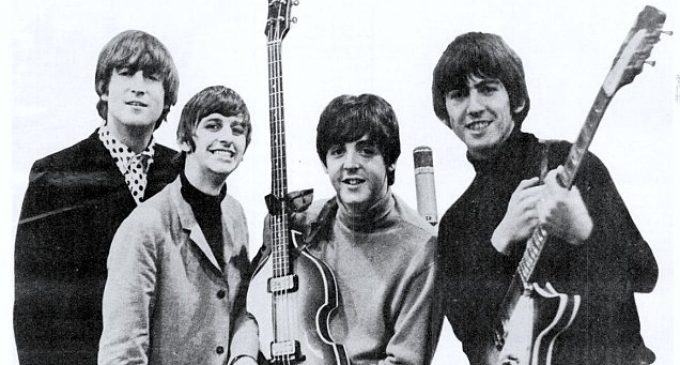Songs with chord changes light up brain’s reward centre | Daily Mail Online

Record bosses have spent millions trying to create the perfect pop song.They find heart-throb singers who will set teenagers’ hearts aflutter, employ teams of lyricists, and demand a tune catchy enough to guarantee weeks of airplay.But the key to a smash hit may be far more simple, as classic bands like the Beatles and Beach Boys know all too well.To achieve greatness, a song needs a sudden chord change, according to US neuroscientists who examined 545 top-selling pop songs from more than three decades.Scroll down for video Record bosses have spent millions trying to create the perfect pop song. They find heart-throb singers who will set teenagers’ hearts aflutter, employ teams of lyricists, and demand a tune catchy enough to guarantee weeks of airplay+5 Record bosses have spent millions trying to create the perfect pop song. They find heart-throb singers who will set teenagers’ hearts aflutter, employ teams of lyricists, and demand a tune catchy enough to guarantee weeks of airplay WHAT MAKES THE PERFECT SONG? The study analysed chord-by-chord transcriptions of the harmonies of 545 songs that entered the American Billboard Hot 100 charts between 1958 and 1991. The resarchers measured how far the chords of the song deviated from what was expected. For example, C major is usually followed by G and F major in Western tonal music and a change from this would be classed as a surprise. These measures of surprise were compared throughout the entire song and between song sections.The team then used the peak position of the song in the weekly Billboard Hot 100 chart to determine its popularity.It revealed that verses, not the choruses or bridges, accounted for much of the difference in harmonic surprise between the most and least popular songs in the Billboard Hot 100 chart. The researchers suggest that high surprises in the harmony of a song, as well as high surprises followed by a lower-surprise section, can both contribute to the enjoyment of an unfamiliar piece of music.An unexpected chord change is thought to trigger a rush of dopamine in the brain similar to that created by food and sex. This is the moment when people get ‘chills’ from a song, and the technique is used by the Beach Boys in the first 10 seconds of Wouldn’t It Be Nice as well as in the final chorus of the Beatles’ classic Penny Lane.The US researchers present their findings in the journal Frontiers in Human Neuroscience. Co-author Norberto Grzywacz, professor of neuroscience at Georgetown University in Washington, said: ‘We evaluated the role of a compositional element – the harmonic surprise.’Surprise is important because it is a measure of new information – something that the reward centres of the brain recognise as being of value, leading to a positive emotional response.’Therefore, our finding that the most popular songs tend to include surprising chords reflects our brain’s in-built preference.’The study took the harmonies of the top 100 songs in the charts between 1958 and 1991, analysing their harmonies chord by chord.To select their sample, they chose songs only in a major key, and judged their popularity based on their chart ranking for record sales and airplay.
Source: Songs with chord changes light up brain’s reward centre | Daily Mail Online




There are no comments at the moment, do you want to add one?
Write a comment